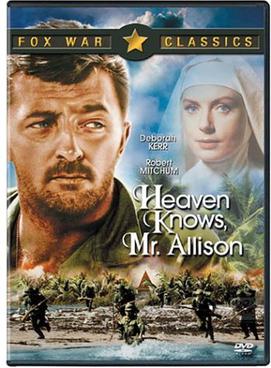
Heaven Knows, Mr. Allison is a 1957 American CinemaScope war film that tells the story of two people stranded on a Japanese-occupied island in the Pacific Ocean during World War II.

Lockleaze is an area and council ward in the northern suburbs of the city of Bristol, England, 3 miles (5 km) north of the city centre, south of Filton, east of Horfield and west of Frenchay.
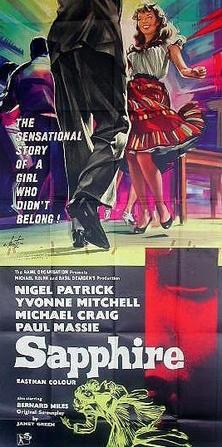
Sapphire is a 1959 British crime drama film directed by Basil Dearden, starring Nigel Patrick, Earl Cameron and Yvonne Mitchell. It focuses on racism in London toward immigrants from the West Indies, and explores the "underlying insecurities and fears of ordinary people" about those of another race. It was considered a progressive film for its time.

The Devil-Ship Pirates is a 1964 British pirate adventure film directed by Don Sharp.

The Quare Fellow is Brendan Behan's first play, first produced in 1954. The title is taken from a Hiberno-English pronunciation of queer.

A Kind of Loving is a 1962 British kitchen sink drama film directed by John Schlesinger, starring Alan Bates and June Ritchie. It is based on the 1960 novel of the same name by Stan Barstow which was later adapted into the 1982 television series A Kind of Loving. The film tells the story of two lovers in early 1960s Lancashire. It belongs to the British New Wave movement.
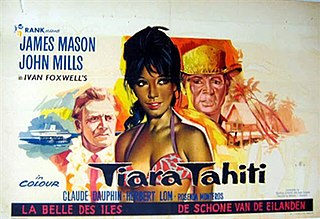
Tiara Tahiti is a 1962 British comedy-drama film directed by Ted Kotcheff and starring James Mason and John Mills. Kotcheff's directorial debut, it is based on the novel by Geoffrey Cotterell, who also adapted it for the screen with Ivan Foxwell.

Only Two Can Play is a 1962 British comedy film directed by Sidney Gilliat starring Peter Sellers, Mai Zetterling and Virginia Maskell. The screenplay was by Bryan Forbes, based on the 1955 novel That Uncertain Feeling by Kingsley Amis.
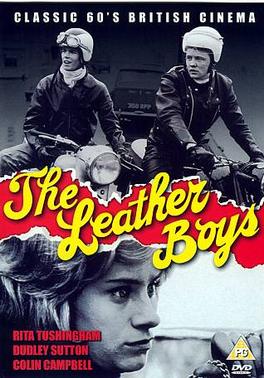
The Leather Boys is a 1964 British drama film directed by Sidney J. Furie and starring Rita Tushingham, Colin Campbell and Dudley Sutton. The story is set in the rocker subculture in London and features a gay motorcyclist.

Father Came Too! is a 1964 British comedy film directed by Peter Graham Scott and starring James Robertson Justice, Leslie Phillips and Stanley Baxter. It is a loose sequel to The Fast Lady (1962).

Clive Stanley Donner was a British film director who was part of the British New Wave, directing films such as The Caretaker, Nothing but the Best, What's New Pussycat?, and Here We Go Round the Mulberry Bush. He also directed television movies and commercials through the mid-1990s.
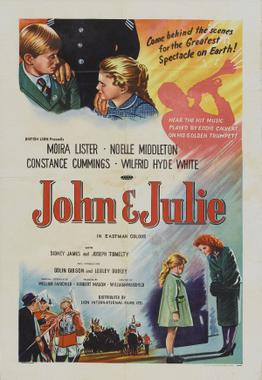
John and Julie is a 1955 British comedy film written and directed by William Fairchild for Group 3 Films and distributed by British Lion Films. The cast includes Colin Gibson and Lesley Dudley as John and Julie respectively. Other stars include Noelle Middleton and Moira Lister, and featuring Peter Sellers and Sid James in early screen roles. It marked the film debut of Valerie Buckley. In 1953, two children are determined to see the Queen and decide to make their way to London.

Train of Events is a 1949 British portmanteau film made by Ealing Studios, directed by Sidney Cole, Charles Crichton and Basil Dearden and starring Jack Warner, Peter Finch and Valerie Hobson. The film premiered on 18 August 1949 at the Gaumont Haymarket in London. In the film, as a train is heading for a crash into a stalled petrol tanker at a level crossing, four different stories are told in flashback.
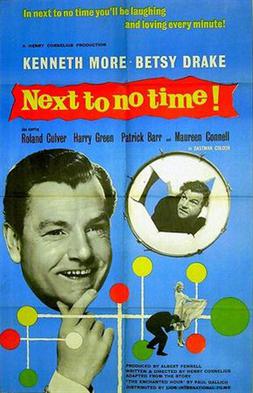
Next to No Time, also known as Next to No Time!, is a 1958 British colour comedy film written and directed by Henry Cornelius and starring Kenneth More, Betsy Drake, John Laurie, Sid James and Irene Handl. It was based on Paul Gallico's short story The Enchanted Hour. It was the last feature film completed by Cornelius before his death in 1958. The film concerns an underconfident engineer who is helped by the advice of a ship's barman.

Ladies Who Do is a 1963 British comedy film directed by C. M. Pennington-Richards and starring Peggy Mount, Robert Morley and Harry H. Corbett.

The Pleasure Girls is a1965 British drama film directed by Gerry O'Hara and starring Francesca Annis, Ian McShane and Klaus Kinski.

Sally in Our Alley is a 1931 British romantic comedy drama film directed by Maurice Elvey and starring Gracie Fields, Ian Hunter, and Florence Desmond. It is based on the 1923 West End play The Likes of Her by Charles McEvoy.
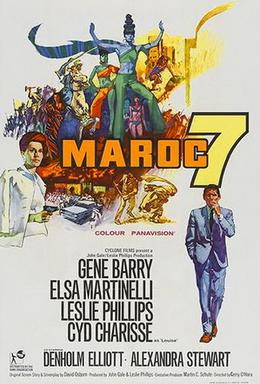
Maroc 7 is a 1967 British thriller film directed by Gerry O'Hara, starring Gene Barry, Cyd Charisse, Elsa Martinelli, Leslie Phillips and Denholm Elliott.

The Man in the Mirror is a 1936 British comedy film, directed by Maurice Elvey and starring Edward Everett Horton, Genevieve Tobin and Ursula Jeans.
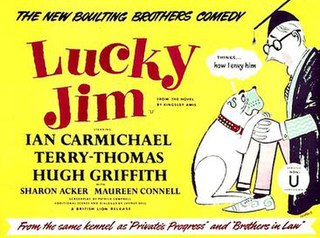
Lucky Jim is a 1957 British comedy film directed by John Boulting and starring Ian Carmichael, Terry-Thomas and Hugh Griffith. It is an adaptation of the 1954 novel Lucky Jim by Kingsley Amis.




















